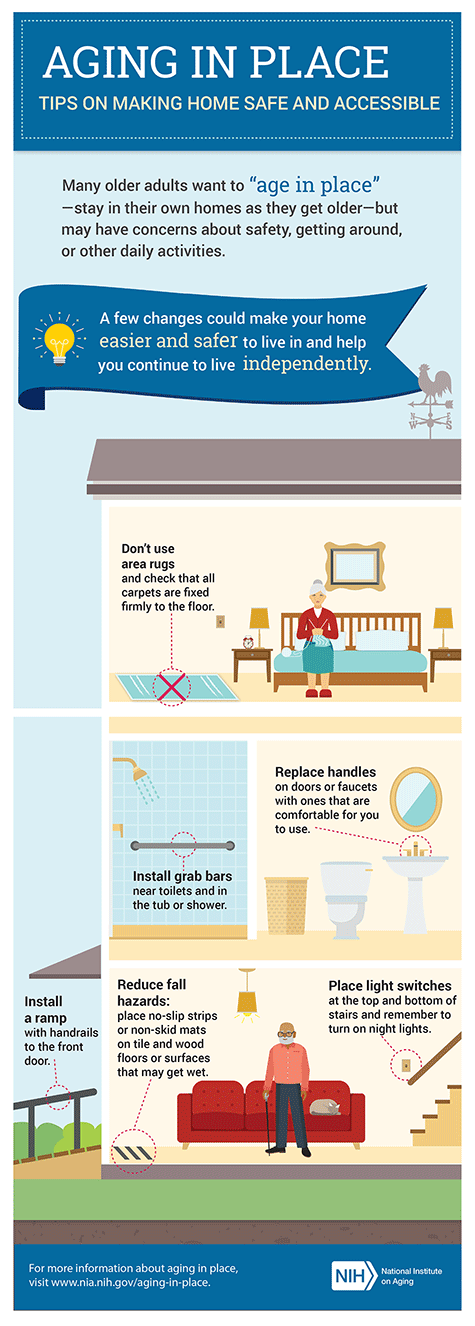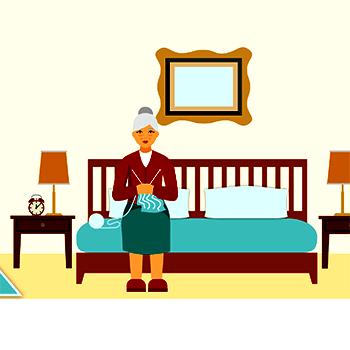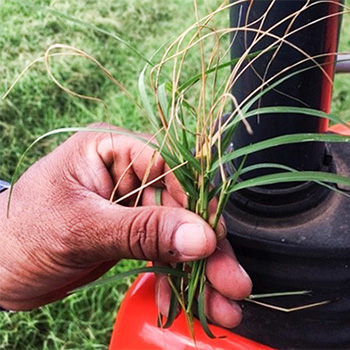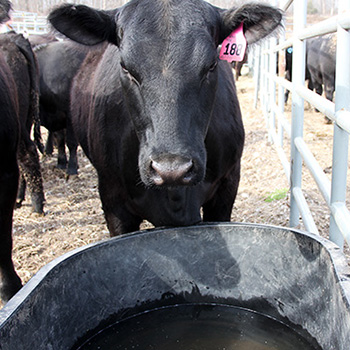
Aging in Place: Growing Older at Home
There are plenty of resources available for living out the dream of staying home as you age.
“The stairs are getting so hard to climb.”
“Since my wife died, I just open a can of soup for dinner.”
“I’ve lived here 40 years. No other place will seem like home.”
These are common issues for older people. You may share the often-heard wish, “I want to stay in my own home!” The good news is that with the right help, you might be able to do just that. Staying in your own home as you get older is called “aging in place.” This article contains suggestions to help you find the help you need to continue to live independently.
Planning ahead to stay in your home
Planning ahead is hard because you never know how your needs might change. The first step is to think about the kinds of help you might want in the near future. Maybe you live alone, so there is no one living in your home who is available to help you. Maybe you don’t need help right now, but you live with a spouse or family member who does. Everyone has a different situation.
One way to begin planning is to look at any illnesses, like diabetes or emphysema, that you or your spouse might have. Talk with your doctor about how these health problems could make it hard for someone to get around or take care of him- or herself in the future. If you’re a caregiver for an older adult, learn how you can get them the support they need to stay in their own home.
What support can help me stay at home?
You can get almost any type of help you want in your home — often for a cost. You can get more information on many of the services listed here from your local Area Agency on Aging, local and state offices on aging or social services, tribal organization or nearby senior center.
Personal care. Is bathing, washing your hair or dressing getting harder to do? Maybe a relative or friend could help. Or, you could hire a trained aide for a short time each day.
Household chores. Do you need help with chores like housecleaning, yard work, grocery shopping or laundry? Some grocery stores and drug stores will take your order over the phone and bring the items to your home. There are cleaning and yard services you can hire, or maybe someone you know has a housekeeper or gardener to suggest. Some housekeepers will help with laundry. Some dry cleaners will pick up and deliver your clothes.
Meals. Worried that you might not be eating nutritious meals or tired of eating alone? Sometimes you could share cooking with a friend or have a potluck dinner with a group of friends. Find out if meals are served at a nearby senior center or house of worship. Eating out may give you a chance to visit with others. Is it hard for you to get out? Ask someone to bring you a healthy meal a few times a week. Meal-delivery programs bring hot meals into your home; some of these programs are free or low-cost.
Money management. Do you worry about paying bills late or not at all? Are health insurance forms confusing? Maybe you can get help with these tasks. Ask a trusted relative to lend a hand. Volunteers, financial counselors, or geriatric care managers can also help. Just make sure you get the referral from a trustworthy source, like your local Area Agency on Aging. If you use a computer, you could pay your bills online. Check with your bank about this option. Some people have regular bills, like utilities and rent or mortgage, paid automatically from their checking account.
Be careful to avoid money scams. Never give your Social Security number, bank or credit card numbers, or other sensitive information to someone on the phone (unless you placed the call) or in response to an email. Always check all bills, including utility bills, for charges you do not recognize.
Even though you might not need it now, think about giving someone you trust permission to discuss your bills with creditors or your Social Security or Medicare benefits with those agencies. Learn more about legal and financial planning for older adults.
Health care. Do you forget to take your medicine? There are devices available to remind you when it is time for your next dose. Special pill boxes allow you or someone else to set out your pills for an entire week. Have you just gotten out of the hospital and still need nursing care at home for a short time? The hospital discharge planner can help you make arrangements, and Medicare might pay for a home health aide to come to your home.
If you can’t remember what the doctor told you to do, try to have someone go to your doctor visits with you. Ask them to write down everything you are supposed to do or, if you are by yourself, ask the doctor to put all recommendations in writing.
Be prepared for a medical emergency
If you were to suddenly become sick and unable to speak for yourself, you probably would want someone who knows you well to decide on your medical care. To make sure this happens, think about giving someone you trust permission to discuss your health care with your doctor and make necessary decisions. Learn about healthcare advance directives. Talk with your doctor about whether you should get a medical alert ID bracelet or necklace.
Aging in place: Common concerns
If staying in your home is important to you, you may still have concerns about safety, getting around or other activities of daily life. Find suggestions below to help you think about some of these worries.
Getting around at home and in town. Are you having trouble walking? Perhaps a walker would help. If you need more, think about getting an electric chair or scooter. These are sometimes covered by Medicare. Do you need someone to go with you to the doctor or shopping? Volunteer escort services may be available. If you are no longer driving a car, find out if there are free or low-cost public transportation and taxis in your area. Maybe a relative, friend or neighbor would take you along when they go on errands or do yours for you. To learn about resources in your community, contact Eldercare Locator at 1-800-677-1116 (toll-free) or https://eldercare.acl.gov.
Activities and friends. Are you bored staying at home? Your local senior center offers a variety of activities. You might see friends there and meet new people, too. Is it hard for you to leave your home? Maybe you would enjoy visits from someone. Volunteers are sometimes available to stop by or call once a week. They can just keep you company, or you can talk about any problems you are having. Call your local Area Agency on Aging to see if they are available near you.Safety. Are you worried about crime in your neighborhood, physical abuse or losing money as a result of a scam? Talk to the staff at your local Area Agency on Aging. If you live alone, are you afraid of becoming sick with no one around to help? You might want to get an emergency alert system. You just push a special button that you wear, and emergency medical personnel are called. There is typically a monthly fee for this service.
Housing. Would a few changes make your home easier and safer to live in? Think about things like a ramp at the front door, grab bars in the tub or shower, nonskid floors, more comfortable handles on doors or faucets, and better insulation. Sound expensive? You might be able to get help paying for these changes. Check with your local Area Agency on Aging, state housing finance agency, welfare department, community development groups or the federal government.Help during the day. Do you need care, but live with someone who can’t stay with you during the day? For example, maybe they work. Adult day care outside the home is sometimes available for older people who need help caring for themselves. The day care center can pick you up and bring you home. If your caretaker needs to get away overnight, there are places that provide temporary respite care.
Where can I look for help staying at home?
Here are some resources to start.
People you know. Family, friends, and neighbors are the biggest source of help for many older people. Talk with those close to you about the best way to get what you need. If you are physically able, think about trading services with a friend or neighbor. One could do the grocery shopping, and the other could cook dinner, for example.
Community and local government resources. Learn about the services in your community. Healthcare providers and social workers may have suggestions. The local Area Agency on Aging, local and state offices on aging or social services, and your tribal organization may have lists of services. If you belong to a religious group, talk with the clergy, or check with its local office about any senior services they offer.
Geriatric care managers. These specially trained professionals can help find resources to make your daily life easier. They will work with you to form a long-term care plan and find the services you need. Geriatric care managers can be helpful when family members live far apart.
Federal government sources. The federal government offers many resources for seniors. Longtermcare.gov, from the Administration for Community Living, is a good place to start.
How much will it cost to get help at home?
An important part of planning is thinking about how you are going to pay for the help you need. Some things you want may cost a lot. Others may be free. Some might be covered by Medicare or other health insurance. Some may not. Check with your insurance provider(s). It’s possible that paying for a few services out of pocket could cost less than moving into an independent-living, assisted-living or long-term care facility — and you will have your wish of still living on your own. Resources like Benefits.gov and BenefitsCheckUp® can help you find out about possible benefits you might qualify for.
Are you eligible for benefits from the U.S. Department of Veterans Affairs (VA)? The VA sometimes provides medical care in your home. In some areas, they offer homemaker/ home health aide services, adult day health care, and hospice. To learn more, visit www.va.gov, call the VA Health Care Benefits number at 1-877-222-8387 (toll-free), or contact the VA medical center nearest you.
More information on aging in place:
- Eldercare Locator
1-800-677-1116 (toll-free)
https://eldercare.acl.gov - Centers for Medicare & Medicaid Services
1-800-633-4227 (toll-free)
1-877-486-2048 (TTY/toll-free)
www.medicare.gov - National Association of Area Agencies on Aging
1-202-872-0888
info@n4a.org
www.n4a.org - Department of Housing and Urban Development
1-202-708-1112
1-202-708-1455 (TTY)
https://www.hud.gov/ - Low Income Home Energy Assistance Program
National Energy Assistance Referral Hotline (NEAR)
1-866-674-6327 (toll-free)
energyassistance@ncat.org
https://liheapch.acf.hhs.gov/help - National Resource Center on Supportive Housing and Home Modifications
1-213-740-1364
homemods@usc.edu
www.homemods.org
Editor’s note: This article is from the National Institute of Health’s National Institute on Aging.


















